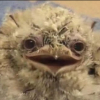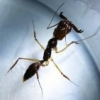It's been about a week since I caught these guys, I have two queens in test tube setups. I also caught a queen that was already apart of a colony and some workers when I dug her up, I then ended up going back and getting more works/eggs. They are set up just fine in my omninest and the queen is actually taking care of those eggs so I'm pretty sure that means the eggs are not dead.
When I caught this queen though, she was not very far below ground, there had to be hundreds of workers everywhere and I simply dug up one of their holes about 4-5 inches, and there went a queen running out of it. Could this possibly mean she is a worker queen? It has laid eggs yet and it's been a week, but it could be from all the stress of moving her, and also the fact she already has 7 or 8 eggs that I put in there. Not too sure so any help would be appreciated.















